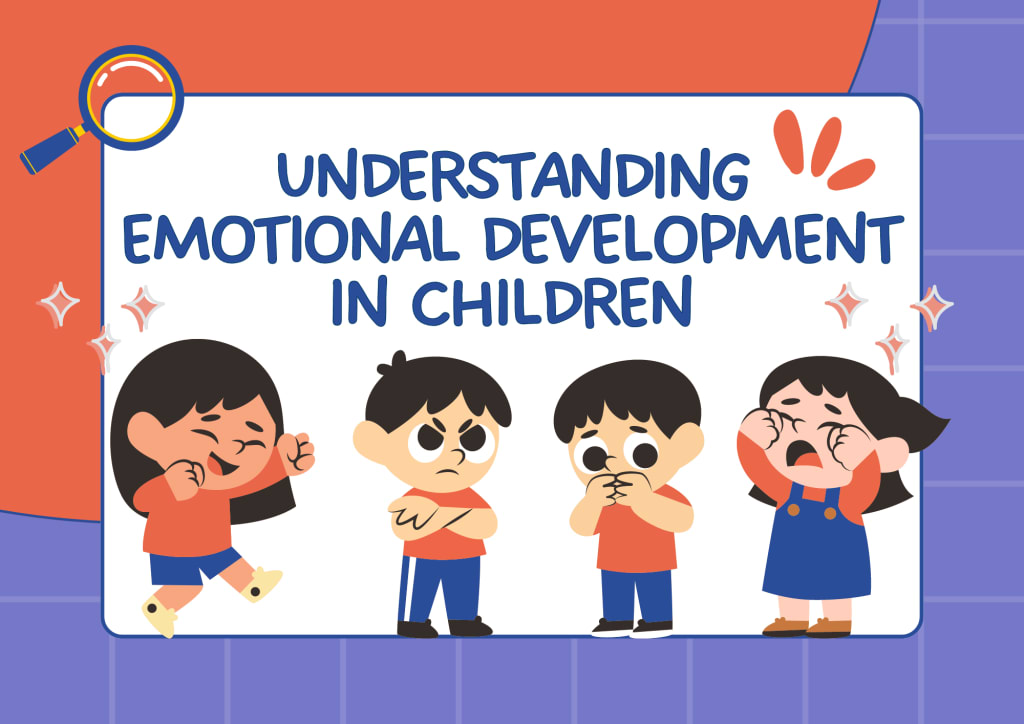Understanding Emotional Development in Children
A Guide for Parents

Emotional development in children is a critical aspect of their overall growth and well-being. It encompasses the ability to recognize, express, and manage emotions effectively.
For parents, understanding emotional development in children is essential to support their academic and social success, especially within a school environment. Read more at https://blog.edu123.in/understanding-emotional-development-in-children/
This guide aims to provide insights into the importance of emotional development in children, its stages, and practical ways parents can nurture it.
The Importance of Emotional Development in Children
Emotional development in children is crucial for several reasons. It forms the foundation for how children perceive themselves and interact with others. A well-developed emotional intelligence allows children to navigate social complexities, build healthy relationships, and cope with challenges. In the context of school education, emotional development in children influences their academic performance, behavior in class, and ability to collaborate with peers.
Children who have strong emotional skills are more likely to:
- Exhibit positive social behaviors
- Have better academic outcomes
- Develop resilience against stress
- Form healthy relationships with teachers and classmates
Stages of Emotional Development in Children
Understanding the stages of emotional development in children helps parents and educators provide age-appropriate support. Here are the key stages:
- Infancy (0-2 years)
Emotional development in children begins with the formation of basic emotions like joy, anger, sadness, and fear. Babies express these emotions through crying, laughing, and other non-verbal cues.
- Toddlerhood (2-3 years)
Children start recognizing their own emotions and those of others. They begin to develop empathy and can respond to others' feelings. This stage involves learning to manage emotions like frustration and anger.
- Preschool (3-5 years)
During this period, emotional development in children includes understanding complex emotions such as guilt, pride, and shame. They start using words to express their feelings and develop self-regulation skills.
- School Age (6-12 years)
Emotional development in children at this stage is characterized by an increased ability to control emotions and understand social rules. They learn to cope with stress and build stronger peer relationships.
- Adolescence (13-18 years)
Teenagers experience heightened emotional sensitivity and seek independence. Emotional development in children during adolescence involves forming a stable identity and navigating complex social dynamics.
Supporting Emotional Development in Children at Home and School
Parents and educators play a vital role in fostering emotional development in children. Here are some strategies to support this process:
- Model Emotional Intelligence
Children learn by observing adults. Demonstrating healthy emotional behaviors, such as expressing feelings calmly and handling conflicts constructively, sets a positive example for children.
- Encourage Open Communication
Create an environment where children feel safe to express their emotions. Encourage them to talk about their feelings and validate their experiences without judgment.
- Teach Emotional Vocabulary
Help children develop a rich emotional vocabulary. Teaching words that describe different emotions allows children to articulate their feelings accurately and seek appropriate support.
- Promote Empathy and Understanding
Activities that encourage empathy, such as reading stories about diverse experiences or discussing others' perspectives, enhance emotional development in children. Empathetic children are better at forming positive relationships.
- Provide Consistent Routines
Consistent routines offer a sense of security, which is essential for emotional development in children. Predictable schedules help children manage their expectations and reduce anxiety.
- Use Positive Discipline
Positive discipline strategies, such as setting clear boundaries and using logical consequences, support emotional development in children. These methods teach children self-control and responsibility without damaging their self-esteem.
- Encourage Problem-Solving Skills
Guide children in solving problems independently. This approach helps them develop critical thinking and resilience, which are important components of emotional development in children.
- Foster a Growth Mindset
Encouraging a growth mindset—where children see challenges as opportunities for learning—supports emotional development in children. This mindset helps them persevere through difficulties and view failures as part of the learning process.
About the Creator
Enjoyed the story? Support the Creator.
Subscribe for free to receive all their stories in your feed. You could also pledge your support or give them a one-off tip, letting them know you appreciate their work.





Comments
There are no comments for this story
Be the first to respond and start the conversation.